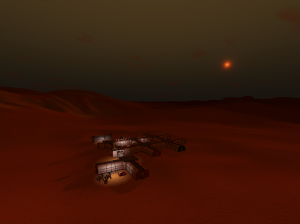The clock has started…
I received a visit from my MSc Supervisor last Tuesday, and he had kindly come from Edinburgh to speak about Literary, Science and games-based learning.
A delightful buffet, ice-breaker conversation that included two distinguished colleagues and them we were underway.
Data. Limits. What exactly am I looking to analyse?
Well I’ve recently become less fearful in modifying my original Research Question, including the key points it hoped to explore: this is key because one of the suggestions was scope, the corollary being the volume and management of the generated data.
Gantt Charts are useful (but sometimes they are all consuming) and I have two, a ‘micro’ and a ‘macro’. The meta level planning – academic reading, literature review, questionnaires, observations, data collation, analysis, write up and submission …
The micro identifies the daily (and lesson plan) ‘action research’ activities across the 5 weeks between 6th January and the first week of February. The first two weeks are aimed at providing pupils with the backstory to their imagined Mars landing, as well as allowing them time to acclimatise to the GUI, their team (of 4).
Being the kernel to the focus if analytical lens of Activity Theory (CHAT) , we then have three weeks of learning where pupils adopt the tool of Mars Colony Challenger and I observe m activities that I hope are transformative in knitting together ‘seeded’ Science curricular knowledge, in-game immersion and literacies. (Amazon provided two cheap but capable tripods for the department Flip cameras to deliver this rich qualitative data set.)
Pupil journals, observations of group discussion, records of reading occurrences of multiple media forms (even F1 Help provides a ‘text’) and weekly triangulation with my ‘Science Guy’ to assess the progress of pupils’ competence against a set of ‘SCN-‘ Es & Os.
An ‘exit questionnaire’ or report task will provide us with a testing instrument against which will be applied pre-questionnaire knowledge.
A number of ‘ENG-‘ outcomes have been defined, but the majority are Literacy focused and cover Reading, Writing, Listening(Watching) and Talking. In conjunction with activity system diagrams, activity narratives and the application of the aforementioned Es & Os I will look at additional ‘codes’ that present themselves through MCC use and ‘curious play’.
Common ground? Literacy. And how will the addition of a multi-user simulation software application immerse and engage pupils in applying their learning within a collaborative virtual environment?
Findings.




